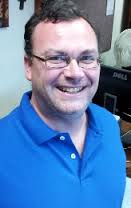Candidate Statement: Thomas J. Maccarone
Nominated Office: USNC-IAU
Affiliation: Texas Tech University
Position/title: Professor of Physics & Astronomy
PhD institution: Yale (2001)
Areas of scientific interest:
- Compact objects
- Formation and evolution of binary stars
- Globular clusters and globular cluster systems
- Nearby galaxies
AAS positions & dates: n/a
Other relevant positions & experience:
- Numerous scientific organizing committees (typically 1-2 per year, and one chaired every 2-3 years), and time allocation committees (typically 1-2 per year)
- Chandra Users' Committee (2015-present)
- Next Generation Very Large Array Scientific Advisory Committee (2017-present)
Candidate Statement: Over my career, I have worked in four countries, and have established strong collaborative relationships with scientists across all continents except Antarctica. Several of my most valued colleagues have come from countries where the IAU is one of the few reliable resources for even small amounts of funding, and one of the few functioning organizations that recognizes the value of basic research even in developing nations. Further, many scientists work in countries where the IAU represents a way to make an end run around the "old boys' network" that runs science in their countries. As such, I am grateful we have this organization.
Still, I would like to see some modernization of the IAU, and would like the opportunity to help advocate for changes that would bring the IAU solidly into the 21st century. The IAU Symposia, once of great importance to astronomy, now represent a very small fraction of astronomy meetings as international meetings have become easier to organize without an international body providing logistical support. In the present era, the two-year lead time for IAU meetings means that many vitally interesting meetings are not held under IAU auspices. In my view, the pressing need is to have an organization that can help support capacity-building meetings where leading scientists from developed countries work with students and faculty in less developed nations. Unlike supporting traditional scientific conferences, the IAU is uniquely situated to promote this sort of activity. Additional support for growth of astronomy in developing countries could be provided by making arrangements to distribute used, but still functional, computer equipment to astronomers in need.
The second resolution I'd like to push would be one to promote the "open skies" concept in astronomy. National Science Foundation and NASA led projects in the US have long held to this model (with the exception of the unfortunate China collaboration policy that has been imposed on NASA). Most observatories in most foreign countries have followed suit, at least with some substantial fraction of their time. Still, we are moving toward a future where sharing resources to do the best science is becoming less likely. This is of particular importance to US radio astronomers, who are potentially facing a future without SKA access after the US has provided worldwide access to NRAO facilities for generations. I aim to begin discussions on how we can set up a situation that rewards countries for making investments in new facilities while also ensuring that access exists for the best scientists, regardless of national affiliation.


